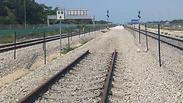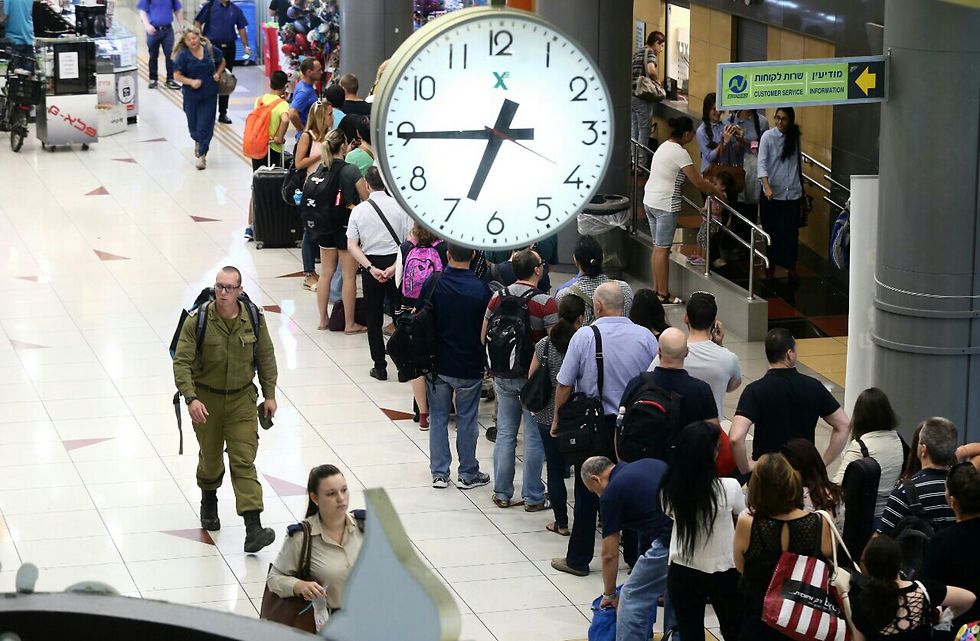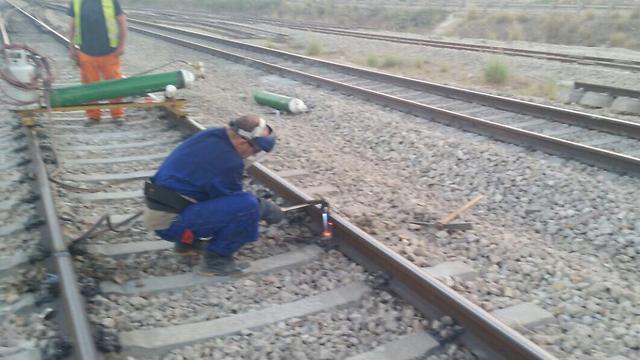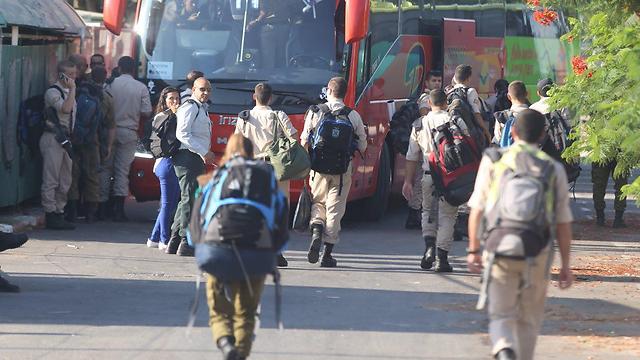
Halt of Shabbat train works caused even more Shabbat desecration
While the 100 employees working on train track upgrade were sent home, the abruptly halted work necessitated organizing shuttle buses to take soldiers back to their bases, resulting in many employees at Israel Railways, the IDF, the Defense Ministry and other officials working on Shabbat.
While 100 Israel Railways workers, who were supposed to work during Shabbat on upgrades and renovation to the coastal line train infrastructure, were sent home before sundown Friday—they were replaced by no less than 120 administration workers who had to work Friday night and all of Saturday to minimize the inevitable chaos at the train stations on Saturday night and Sunday morning.
In addition, workers of bus company Egged and of different government ministries, as well as IDF personnel, all had to desecrate the Shabbat to organize alternative transportation, especially for soldiers returning to base from their weekend break.
Late Friday afternoon, about five minutes before the beginning of Shabbat, Prime Minister Benjamin Netanyahu ordered to halt the train works. Because it took time for the order to reach the workers, some of the works continued into the Shabbat, and parts of the train tracks between the Tel Aviv Center station and the Tel Aviv University station were already disassembled. Work along the coastal line began in other places as well—in the Atlit and Herzliya areas.
As a result, dozens of Israel Railways employees had to spend the Shabbat in front of computers and on the phone to figure out which trains would have to be cancelled and plan alternative transportation. Management and operations personnel were also called in to work on Shabbat to examine how long it would take to continue the works after the end of Shabbat, which trains could operate on Saturday night, and when could the trains resume operations on Sunday.
After realizing the decision to halt the planned Shabbat works will affect tens of thousands of soldiers, personnel at the Prime Minister's Office held consultations with the Defense Ministry during Shabbat to ensure there would be buses to transport the soldiers from the closed train stations to their bases. A statement came from Netanyahu and Defense Minister Avigdor Lieberman's offices during Shabbat that the issue of transporting the soldiers has been resolved—once again in a desecration of Shabbat.
Organizing the alternative transportation entailed a significant desecration of Shabbat as well. The Defense Ministry instructed bus company Egged on Shabbat to organize the necessary buses. Egged then had to coordinate and obtain approvals for these buses from the Transportation Ministry, as well as employing the services of Egged's subsidiary Eseim and of private shuttle companies.
Employees and personnel at the IDF and Defense Ministry also had to work during Shabbat, including the Defense Ministry's director general, the head of the Procurement and Production Directorate, the head of the Logistics Operations Branch, and the head of the ministry's Transportation Division—all of whom had to coordinate the shuttle buses. The ministry's accountant-general also had to work, being called in to authorize the budget for the buses.
The defense minister's military secretary also had to work to coordinate with the IDF General Staff, as did Lieberman's spokesperson, the head of his office, and the ministry's spokesperson's office.
Among the IDF officers who had to work on Shabbat were the head of the Technological and Logistics Directorate and the head of the Logistics Corps, who had to organize and allocate the buses based on needs; the head of the Manpower Directorate, who had to organize security for the bus pickup points; Military Police that secured the bus pickup points; the Transportation Center that coordinated the pickup points; the IDF Spokesman's Office; and commanders of bases and units who had to organize soldiers to cover the shifts of those who were late to return to base on time because of the cancelation of trains.

The Defense Ministry said in response: "The defense establishment is doing all that is necessary to get the soldiers safely back to base until the renewal of train operations."
Dr. Yacov Sheinin, the CEO of Modelim, a company consulting the government on transportation, estimated that the cancelation of trains, as well as the resulting heavy traffic caused by the addition of hundreds of buses and thousands of private vehicles on the roads, could cost the Israeli economy at least NIS 440 million. This is in addition to tens of thousands of shekels in damages caused to the Israel Railways over the loss of workdays. In total, the decision to halt the train work on Shabbat cost the Israeli economy some half a billion shekels in damages.
Ofer Petersburg, Gad Lior, Itamar Eichner, Udi Etzion and Tzachi Dabush contributed to this report.












